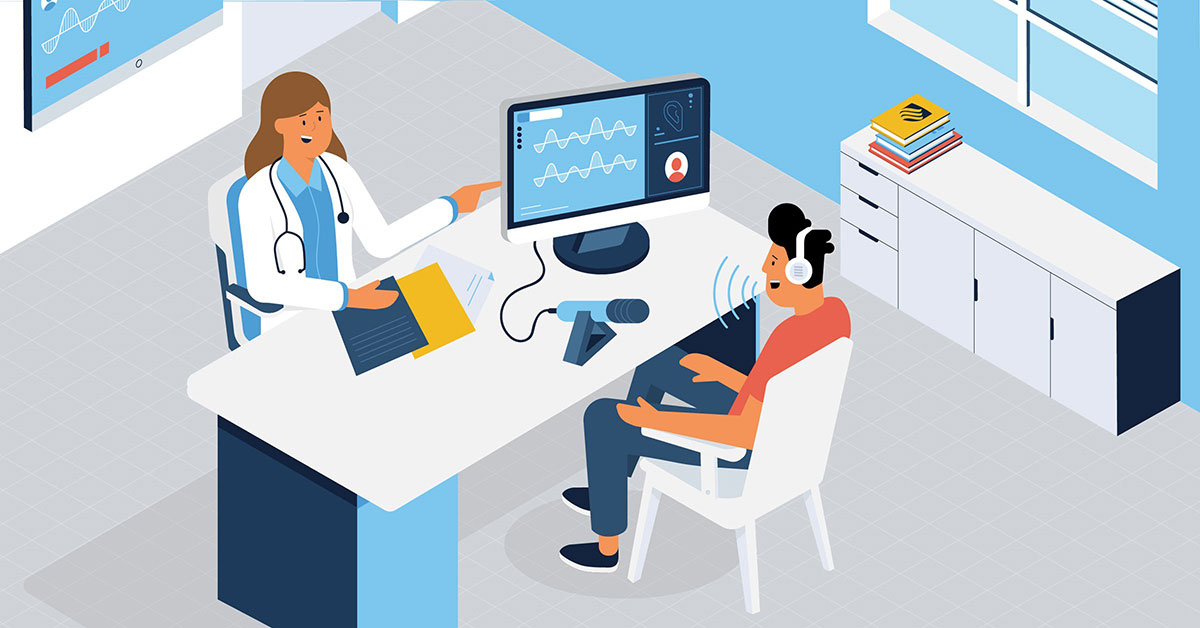Speech Pathology Education Requirements
GRADUATE STUDIES | 4 MIN READ

Thinking of entering the enriching field of speech-language pathology? It’s a wonderfully diverse discipline that offers rewarding experiences and meaningful career opportunities.
According to the U.S. Bureau of Labor Statistics, the average annual salary of a speech therapist was near $80,000 in 2017, and jobs are expected to grow 18 percent between 2016 and 2026.
No matter what type of specialization or work setting you are interested in pursuing, it’s important to know the speech-language pathology education requirements for certification as a speech-language pathologist.
Earning a national certification is a crucial step in the professional life of any speech-language pathologist—and you will need a master’s degree to be able to take that step.
Seek out a program that offers robust coursework, experiential learning and high-level preparation, and you will be on your way to a career in speech-language pathology.
What Do Speech-Language Pathologists Do?
Alternately referred to as speech therapists, speech-language pathologists (or SLPs) work with children and adults who have problems with communication due to a birth defect, developmental disorder, accident or chronic condition. These professionals evaluate, diagnose and treat clients, taking a comprehensive approach to the individual. Here are some of the areas speech-language pathology addresses:
- Articulation disorders
- Language disorders
- Fluency disorders
- Voice and resonance disorders
- Hearing disorders
- Cognitive aspects of communication
- Social aspects of communication
- Augmentative and alternative communication modalities
- Feeding and swallowing disorders
What Level of Speech Pathology Education do you Need?
To be a certified speech-language pathologist, you will need a master’s degree, so it’s worth taking time to find the best graduate program for your needs. Keep these criteria in mind while you’re examining programs:
- Curriculum. The coursework should explore crucial theories and concepts, as well as build competency in students. Major subjects should include the areas listed in the previous section and counseling related to the communicative difficulty.
- Clinical Practica. Coursework is just one part of a speech-language pathology graduate education; practical clinical experience is equally important. Practica are designed to give students hands-on experience in diverse settings and log the clinical hours necessary to satisfy speech-language pathology education requirements.
- Accreditation. Students should look for a school that has an accredited speech-language pathology program. The primary body for this validation is the Council on Academic Accreditation in Audiology and Speech-Language Pathology, which is part of the American Speech-Language-Hearing Association (ASHA). Elmhurst University’s master’s program in speech-language pathology is accredited.
A master’s degree in communication sciences and disorders can be completed in as few as 20 months. In most cases, the admission requirements are similar to those for other graduate degree programs: a completed application, GRE scores, certain prerequisites, official transcripts and a personal statement.
How is Speech Pathology Certification Obtained?
Once you have your master’s, you are ready for certification as a speech-language pathologist. ASHA maintains the widely recognized and accepted Certificate of Clinical Competence (CCC), which attests to the “level of excellence” in practicing professionals. The certification has one designation for audiology (CCC-A) and one for speech-language pathology (CCC-SLP). There are several factors that figure into certification. Passing an exam is one, and another requirement is the completion of a supervised fellowship.
Once certified, you may be required to register with the state you practice in. CCC certification is active for three years, during which professionals must complete continuing education to preserve their credentialed status.
Get Your Master’s Degree from Elmhurst
Earning a Master of Science in Communication Science and Disorders from Elmhurst University helps prepare you for certification. The program—accredited by ASHA—focuses on experiential learning, allowing students to serve and interact with a diverse range of child and adult clients, as well as professional partners in the field.
You’ll be able to take advantage of resources like the school’s own Speech-Language-Hearing Clinic, which sees actual patients, and the Simulation Center at Elmhurst Memorial Hospital to develop on-the-job skills and practical knowledge.
Elmhurst University also offers a graduate preparation program, which helps students meet requirements for this degree and gain admission into the M.S. in Communication Science and Disorders program.
Request information to learn more today!


